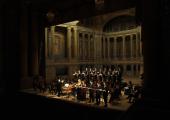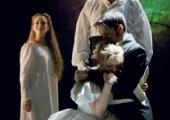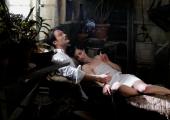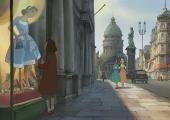Fruitful revival of operatic rarity in French royal palace
In the Sun King's domain, dazzling noon succcumbed to a monstrous snowstorm at twilight. Within the chandeliered splendour of his successor Louis XV's Opéra Royal, a similar drama was about to be enacted: heroic Bellerophon, caught in time-honoured operatic fashion in a struggle between two love rivals, would have to face the chimera on the road to glory. Since this was the by-and-large cosy Lully rather than radical Rameau, I wasn't expecting to feel any pity and terror. Yet pity and sympathy there certainly were thanks to Lully's finest inventions in the hands of Christophe Rousset's Les Talens Lyriques and a superlative Belgian chamber choir.
In the Sun King's domain, dazzling noon succcumbed to a monstrous snowstorm at twilight. Within the chandeliered splendour of his successor Louis XV's Opéra Royal, a similar drama was about to be enacted: heroic Bellerophon, caught in time-honoured operatic fashion in a struggle between two love rivals, would have to face the chimera on the road to glory. Since this was the by-and-large cosy Lully rather than radical Rameau, I wasn't expecting to feel any pity and terror. Yet pity and sympathy there certainly were thanks to Lully's finest inventions in the hands of Christophe Rousset's Les Talens Lyriques and a superlative Belgian chamber choir.










